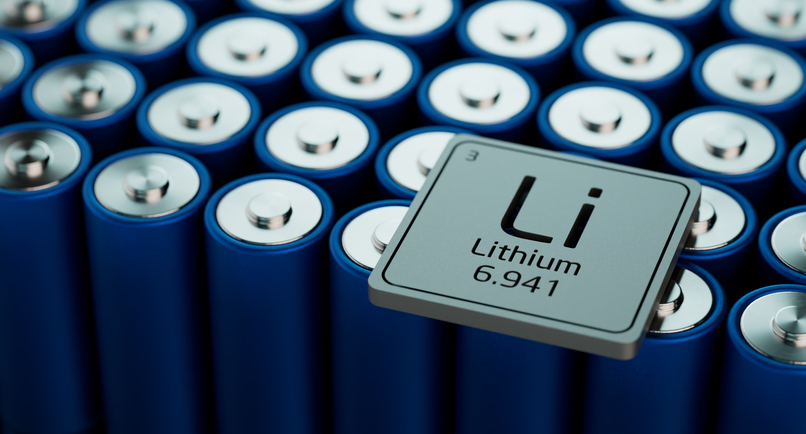
Arkansas potentially has a “world-class resource” in its lithium deposits and is an attractive partner thanks to its welcoming attitude and established regulatory framework. Meanwhile, China enjoys a huge head start and controls the midstream production process between the time lithium is extracted and when it becomes part of a battery.
Those were some of the takeaways from the 2nd annual Arkansas Lithium Innovation Summit in Little Rock, a two-day event that drew a crowd large enough to fill the Wally Allen Ballroom at the Statehouse Convention Center.
The event’s first day (Oct. 28) featured panel discussions by executives from leading companies in south Arkansas’ growing lithium industry, including ExxonMobil, Chevron, and Standard Lithium along with its partner, Equinor. The companies are preparing to extract lithium from the Smackover Formation.
Standard Lithium is planning to start construction of the region’s first direct lithium extraction facility in 2026, said Dr. Andy Robinson, president and chief operating officer. The company has been in Arkansas since 2017.
“The last 18 months have been about gearing us up to now get to the start line,” he said.
The company is partnering with Equinor on its extraction plant. Dr. Allison Kennedy Thurmond, vice president North America lithium, said companies partner with each other to focus on different parts of the risk spectrum for these huge, capital-intensive projects.
ExxonMobil’s lithium global business director, Patrick Howarth, said his company has gone from 100,000 acres to 300,000 acres in south Arkansas and has been drilling exploration wells to better understand the resource. He said Arkansas’ supply has the potential to be a “world-class resource.”
Chevron purchased 125,000 acres in south Arkansas and east Texas in June. Kristen Ghattas, vice president of carbon capture and storage & lithium, said Chevron is testing the technologies and preparing well-drilling programs.
Howarth said the acreage “table has been set” with ExxonMobil, Chevron and Standard Lithium/Equinor each controlling their own geographic areas.
Members of the panel had high praise for Arkansas. Thurmond said the state has a “first-mover advantage” over Texas and has support from state officials and the congressional delegation. Ghattas said people recognize that Arkansas is a leader with a positive, welcoming environment.
Panelists pointed to the state’s established regulatory framework thanks to its century-long association with the brine industry. Howarth said the framework was why ExxonMobil chose to come to Arkansas. His company has set up a partnership with Southern Arkansas University to create a direct lithium extraction screening lab to help train staff members. He noted that Arkansas’ lithium conference is bigger than any of the others.
“I’ve worked on trying to establish energy projects in many jurisdictions around the world through my career, and I’ve never seen such strong support at the local level,” Howarth said.
Standard Lithium’s Robinson noted the challenges involved in developing projects this large. There’s still a lot of skepticism in the marketplace. The companies in south Arkansas must convince lenders and customers to make long-term commitments.
“Quite frankly, we spend a lot of time persuading people outside of Arkansas this is real,” he said.
The summit came at a time when lithium is at a low price thanks to an oversupply from China. London-based Simon Moores, founder and CEO of Benchmark Minerals Intelligence, said the price of lithium has fallen from $71 per kilogram in 2023 to $9 per kilogram today.
Meanwhile, the market has grown quickly to 1.3 million tons – the bulk of the growth occurring over the last three years. He said it could grow to 10 times that amount over the next 30 or 40 years.
Moores said lithium is more than a specialty mineral but instead is a matter of economic security, energy security and therefore national security. He said that now is the time to invest, although the next five years will be difficult. The finances are needed for the U.S. to take domestic production from China.
China’s major head start came up several times during the discussions. Moores said that country made lithium a national strategic priority 15 years ago and now controls the upstream and downstream parts of the process.
What’s needed are companies ready to fill the “missing midstream” where the extracted lithium is purified and prepared to be used for finished battery projects. At present, virtually all of that occurs in China.
Robinson said the need for the United States to have more control over the resource is obvious. Support exists at the federal and state levels.
“The will is there,” he said. “I think the technology is there. We’re 10 years behind China. Let’s not kid anyone.”
David Park, CEO of Standard Lithium, said in another panel discussion that developing that missing midstream is important. Profit margins are thin, and the industry needs the efficiencies that can come with doing more of the production process nearby. It doesn’t make sense from a national security perspective to invest billions of dollars to extract the lithium but then ship it overseas for the middle part of the process.
The opportunity for Arkansas to participate in those other parts of the process, and not just extraction, was referenced by Gov. Sarah Sanders, Arkansas Secretary of Commerce Hugh McDonald, and U.S. Rep. Bruce Westerman, R-Hot Springs, in comments at the summit.
In a panel discussion, McDonald said the state has hired experts, passed a sales tax exemption, and done a lot of workforce development. The royalty for landowners was set at 2.5%. The Arkansas Lithium Technology Accelerator will focus on midstream technologies and continue to build the ecosystem.
